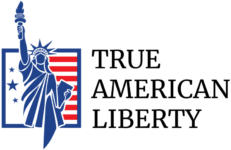The Global Reset: Why the Political Class Is Losing Its Grip

Something remarkable is happening across the globe. For years, political elites held an iron grip on power, treating their offices as personal fiefdoms while ignoring the will of the people. But now, like a sandcastle at high tide, their authority is crumbling. Leaders are falling, regimes are shaking, and the smug predictability of the status quo is being replaced by something far more chaotic—and far more interesting.
Take Europe, for example. Germany’s Chancellor Olaf Scholz is facing mounting pressure as his coalition teeters on the edge of collapse. France’s Emmanuel Macron, once hailed as the golden boy of European politics, can barely govern a nation that’s perpetually on strike. And then there’s the United Kingdom, where the revolving door at 10 Downing Street has become a punchline. Leaders who once seemed untouchable are now learning the hard way that voters, shockingly, expect results.
It’s not just Europe. Across the pond in Latin America, regimes long propped up by corruption and cronyism are finding themselves on shaky ground. Even in the United States, we’ve witnessed a seismic shift as Donald Trump, the ultimate political outsider, prepares for his second term in the White House. His rise wasn’t just a rejection of Democratic policies; it was a rebuke of a Republican establishment that had grown fat and complacent. Love him or hate him, Trump didn’t just disrupt the system—he shattered it.
So, what’s causing this global upheaval? It’s simple: people are fed up. For years, they were told to trust the experts, follow the rules, and accept whatever their leaders decided was best for them. But then came the failures—on immigration, on the economy, on basic governance—and the trust evaporated. The pandemic was the final straw. Lockdowns, mandates, and bureaucratic overreach pushed people to their breaking point, exposing just how little accountability the ruling class truly faced.
Of course, the elites are scrambling to maintain control. They’ll call this a “populist wave,” as if caring about your country’s borders, economy, and values is some fringe ideology. They’ll dismiss the anger as uninformed or irrational, conveniently ignoring the fact that they created the very conditions that fueled it. But the truth is, this isn’t about populism or partisanship—it’s about people waking up to the realization that their leaders have failed them.
And let’s be clear: this isn’t a bad thing. For too long, politics was dominated by career politicians who treated their positions as a birthright. They made decisions based on what would secure their next election or please their donor class, not what was best for their constituents. The current upheaval is a much-needed correction, a reminder that power belongs to the people, not the ruling class.
That’s not to say the road ahead will be smooth. Change is messy, and the transition from old systems to new ones is rarely painless. There will be missteps, overcorrections, and moments of uncertainty. But that’s the price of democracy. It’s not about maintaining the status quo; it’s about constantly striving to do better, even if that means tearing down the structures that no longer serve us.
The political class will fight tooth and nail to regain its footing. They’ll push narratives, manipulate institutions, and do everything in their power to stifle dissent. But the genie is out of the bottle. Around the world, people are demanding more—more accountability, more transparency, more leaders who serve the people rather than themselves. It’s a daunting challenge, but also an exciting opportunity.
So, here’s to the chaos, the uncertainty, and the opportunity to build something better. Because if there’s one thing we’ve learned from the downfall of the elites, it’s this: the people are still in charge. And no matter how hard the ruling class tries to convince us otherwise, they can’t stop a movement that’s already begun.
